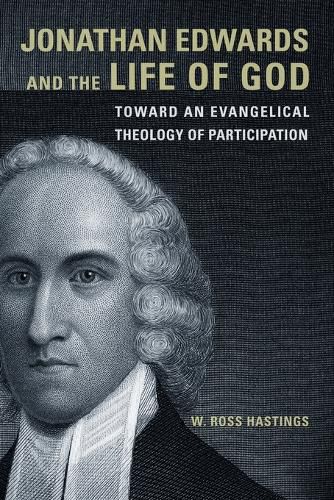Readings Newsletter
Become a Readings Member to make your shopping experience even easier.
Sign in or sign up for free!
You’re not far away from qualifying for FREE standard shipping within Australia
You’ve qualified for FREE standard shipping within Australia
The cart is loading…






Jonathan Edwards and the Life of God aims to offer a retrieval of Edwards’ theology of participation for contemporary evangelical theology. It critically expounds and elucidates the concept of participation in God, or theosis, in Edwards’ Trinitarian theology as it relates to around three unions: the three persons of the Trinity, the hypostatic union of the divine and human in Christ, and that of believers with Christ. This volume brings Edwards’ rich theological work into conversation with the patristic (Augustine and the Cappadocians) and Reformed traditions (Calvin and, especially, Barth), in order to construct with Edwards a more hopeful, liberating, and truly human version of Christian life. Consideration of the life of God in Edwards thus moves beyond in two senses: first, perspectives on participation beyond those of Edwards from Barth, Volf, the Cappadocian Fathers, and others in the tradition, are engaged in order to locate and critique and enhance it; and secondly, in the sense that, as Hastings argues, participation leads, for Edwards and others, into the beyond of the beatific vision-the glory of God.
$9.00 standard shipping within Australia
FREE standard shipping within Australia for orders over $100.00
Express & International shipping calculated at checkout
Jonathan Edwards and the Life of God aims to offer a retrieval of Edwards’ theology of participation for contemporary evangelical theology. It critically expounds and elucidates the concept of participation in God, or theosis, in Edwards’ Trinitarian theology as it relates to around three unions: the three persons of the Trinity, the hypostatic union of the divine and human in Christ, and that of believers with Christ. This volume brings Edwards’ rich theological work into conversation with the patristic (Augustine and the Cappadocians) and Reformed traditions (Calvin and, especially, Barth), in order to construct with Edwards a more hopeful, liberating, and truly human version of Christian life. Consideration of the life of God in Edwards thus moves beyond in two senses: first, perspectives on participation beyond those of Edwards from Barth, Volf, the Cappadocian Fathers, and others in the tradition, are engaged in order to locate and critique and enhance it; and secondly, in the sense that, as Hastings argues, participation leads, for Edwards and others, into the beyond of the beatific vision-the glory of God.